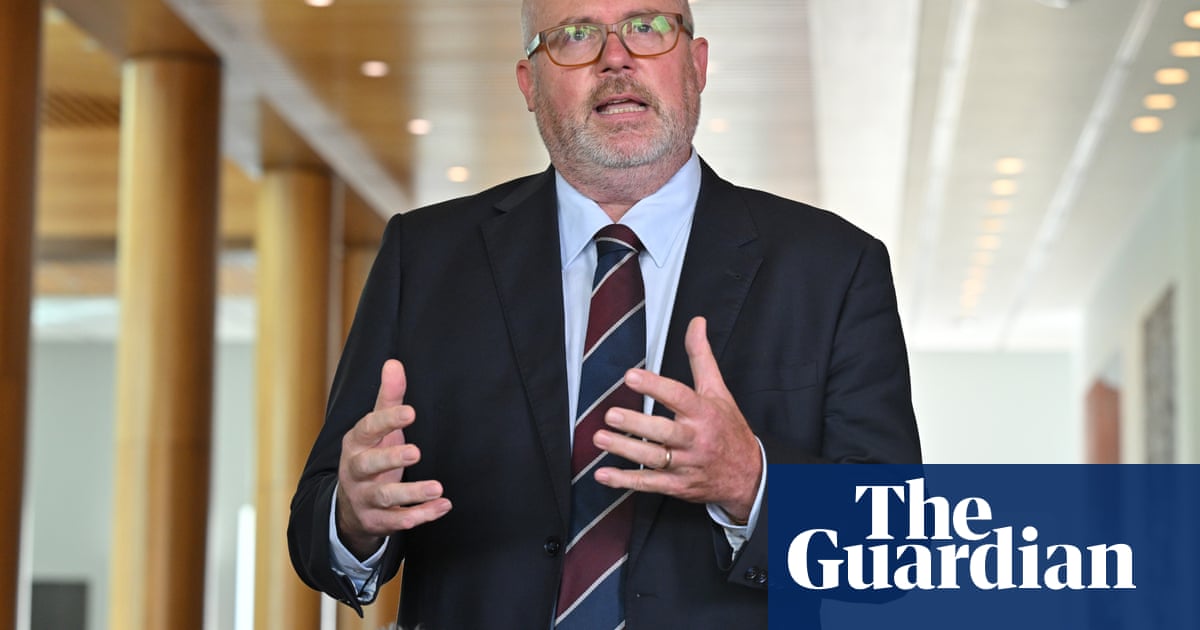Australia must “lean in hard” to the benefits of artificial intelligence or else risk ending up “on the end of somebody else’s supply chain”, according to the new industry and science minister, Tim Ayres, with the Labor government planning to further regulate the rapidly-evolving technology.
Ayres, a former official with the manufacturing union, acknowledged Australians remained sceptical about AI and stressed that employers and employees needed to have discussions about how automation could affect workplaces.
The minister said Australia had “no alternative” but to embrace the new technology and seek to become a world leader in regulating and using AI.
“It’s the government’s job to lean into the opportunity to outline that for businesses and for workers, but also to make sure that they are confident that we’ve got the capability to deal with the potential pitfalls,” Ayres told Guardian Australia.
“I think the Australian answer has got to be leaning in hard and focusing on strategy and regulation that is in the interest of Australians.”
Ayres was promoted to cabinet last month after holding the junior portfolio of assistant minister for manufacturing and trade last term.
Sign up for Guardian Australia’s breaking news email
Now as minister for industry, innovation and science, Ayres has greater direction of the Labor government’s flagship Future Made In Australia initiative – the umbrella plan tying together policies around manufacturing, the energy transition, research and business.
One of Ayres’ more public-facing and immediate challenges, however, is around AI policy. His predecessor, Ed Husic, set up several processes around the development of local industry and mandatory guardrails around its use, including discussion of a new standalone AI act and legislation.
Ayres, who has been minister for less than a month, says the government is still setting its course of action, considering approaches from like-minded countries and the breakneck speed of the technology’s evolution. He said the response would include legislation and regulation, which was still to be decided, but that Australia would benefit from moving quickly.
“There is no alternative to the approach of Australia leaning in. That’s how we’re going to shape a digital future for Australia. That’s how we get some agency and say over the way that the technology develops and and our global partners develop on these questions.
“The alternative is to sit back right and just to be on the end of somebody else’s supply chain,” Ayres said.
The minister said there would be “a lot to gain” from embracing AI, particularly highlighting potential boosts to productivity and economic growth. Ayres, who grew up on a cattle farm near Lismore, said both white-collar and traditional blue-collar jobs could reap benefits from adopting automation and new technology.
He said that his experience in the manufacturing union was that many workers accepted “the cold reality that the only thing more disruptive in the labour market is standing back and allowing Australia to become a cul-de-sac in technological terms.”
“But I do want to see firms and employers being thoughtful about making sure that we’re adopting AI in a way that makes jobs better,” Ayres said.
“We’ve got an industrial relations framework that provides for proper consultation and engagement at the firm level … there’s going to be discussions workplace by workplace, around these questions.”
Last week, the Business Council of Australiareleased a major reportcalling for Australia to become a global leader in AI, talking up its potential to boost productivity and lift living standards through economic growth.
The Australian Council of Trade Unions in Decemberwarned one in three Australian workers are at risk of job lossfrom the introduction of AI.
“The BCA paper released last week pointed to a high level of skepticism amongst Australians about this new wave of technology. That’s not unusual for Australia,” Ayres said.
“Every wave of technological change reshapes the labour market. That’s the truth of it. The negative consequences in jobs terms of technological change have historically been outweighed by the new investment and the new developments in jobs and technologies.”
Ayres also said Labor would continue with its Future Made In Australia agenda, which would include an “aggressive” focus on critical minerals, iron and steel production and boosting manufacturing as part of the renewable energy transition.
“I want to make sure that we’re doing everything we can to be building new factories and industrial capability,” he said.
“Particularly in regions like central Queensland and the Hunter and La Trobe, where the intersection of our future energy advantage and our industrial capability really means Australia can deliver, and deliver for those communities as well.”
